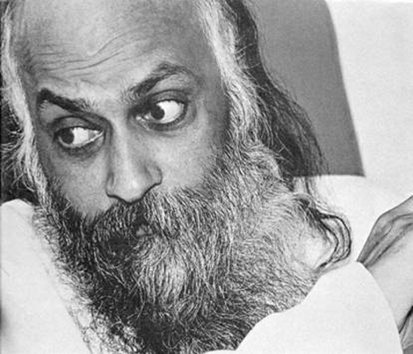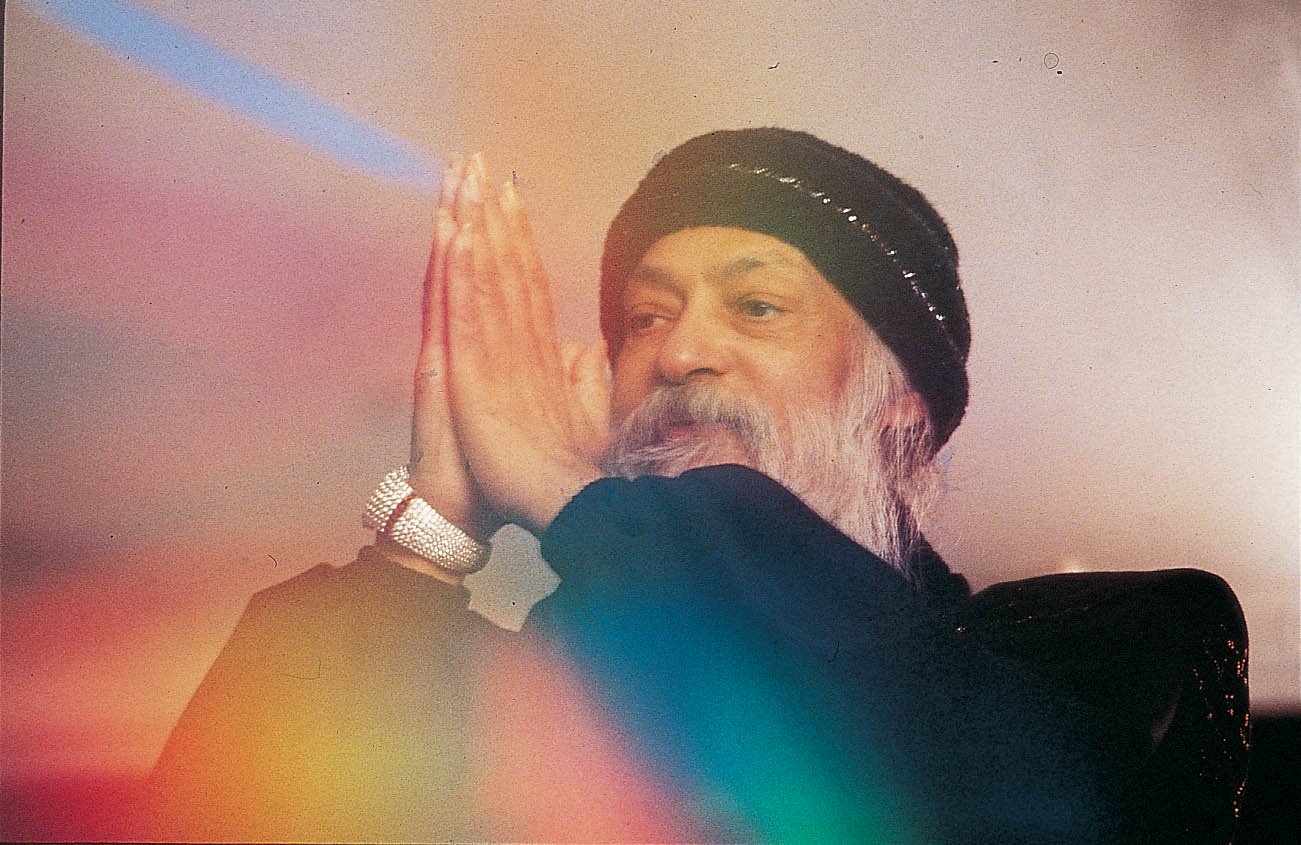When knowledge exists not, there is love. Knowledge is against love. Knowledgeable people cannot love… and people who can love are never knowledgeable. Love makes you wise, but never knowledgeable. Knowledge makes you cunning and clever, but never loving.
The known is the mind, the unknown is God. And Jesus says: God is love. Love comes through the unknown, with the unknown, as part of the unknown. To move into the unknown one needs courage, tremendous courage. To cling to the known there is no need to have any courage: any coward can do it, cowards only do that.
To transcend contradictions is to transcend mind, and to transcend mind is to know what love is. Whatsoever you have known up to now as love has nothing to do with love. It is a misuse of the word. `Love’ has been very much misused. There are only a few words which have been misused like `love’. `God’ is another, `peace’ is another. But `love’ is at the top of the list. Everybody talks about love and nobody knows what it is. People sing about it, people write poetry about it, and they don’t know what love is.
Love knows no object, love is not addressed. Love is only of God. When you love your woman, if you really love her, you will see the woman has disappeared and god is standing there. If you love the tree, you will suddenly see the tree has disappeared and God is very green in it, blooming. Love is only of God. Love is never of the part, love is only of the whole. Love is almost synonymous with prayer.
Love yourself so that you can love others.
People escape to the Himalayas: they are escaping from love, not from the world. They are afraid of love, and their fear has some reason behind it. Whenever you are in love, you are in a turmoil. Whenever there is love there is difficulty; whenever there is love there is conflict; whenever there is love there is hell. Says Jean-Paul Sartre, “The other is hell.” So whenever there is love the other enters your life, and suddenly there is conflict, collision, struggle to dominate each other, to possess each other, to master each other. And the misery arises. Lovers are rarely happy. I am not saying that non-lovers are happy; non-lovers may not be happy, but they are never so unhappy as the lovers.
Either move through love, and you will attain to God, or move through God, and you will attain to love. They come together; it is one package. The hen and the egg are not separate — the egg is nothing but a way for the hen to produce more hens, and the hen is nothing but a way for the egg to produce more eggs. They are not separate. The egg is the hen unmanifest, and the hen is the egg manifest. They are two ends of one thing, of one phenomenon. So are God and love.
Love is possible only if there is no possessiveness and no jealousy. That means love has attained to renunciation. You love the person but you renounce possessiveness; you love the person but you renounce jealousy; you love the person but you don’t want to make a slave out of him or out of her; you love the person but you respect his or her freedom; you love the person but your love does not become an imprisonment. You love, and yet you remain unattached. You love, you love tremendously, but still you don’t cling: that is renunciation.
If your love is so great that it can contain renunciation, only then is it love.
This whole existence is in love: these trees are moving tremendously in love; these stars, these rivers rushing towards the ocean, are rushing towards a love-affair where they can meet and merge. Watch, and you will find everywhere the shadow of love, the thrill, the excitement, the ecstasy of love. Whatsoever the form, if you look deeply, you will always find something throbbing at the center which cannot be anything other than love.




